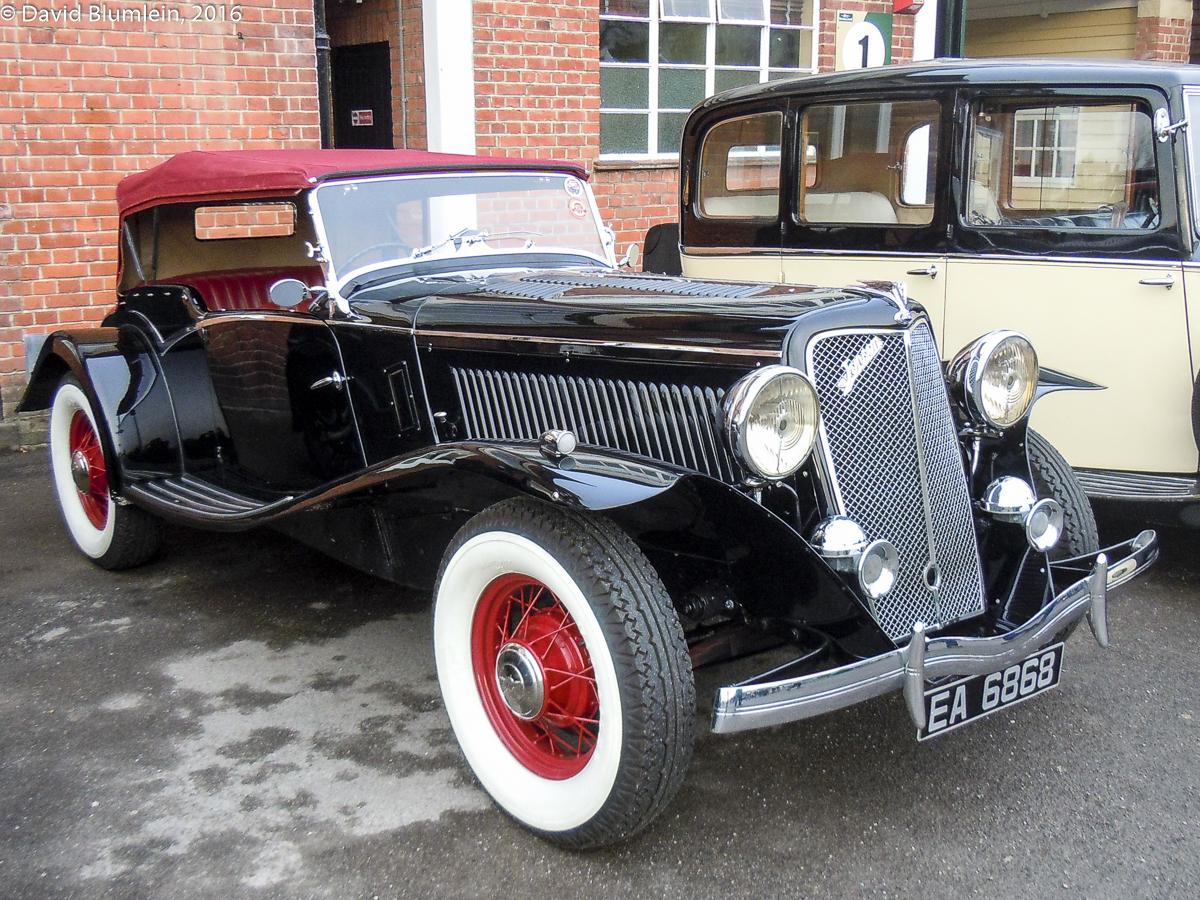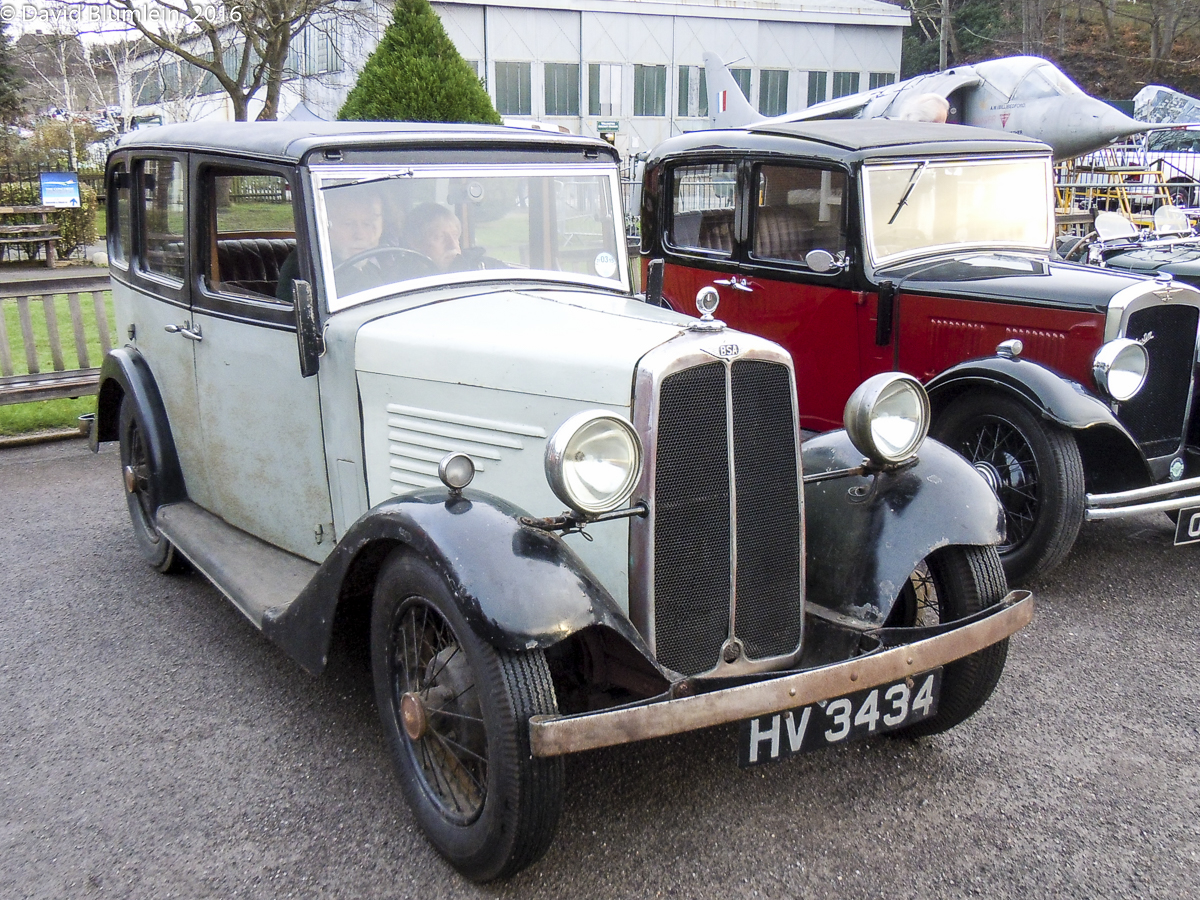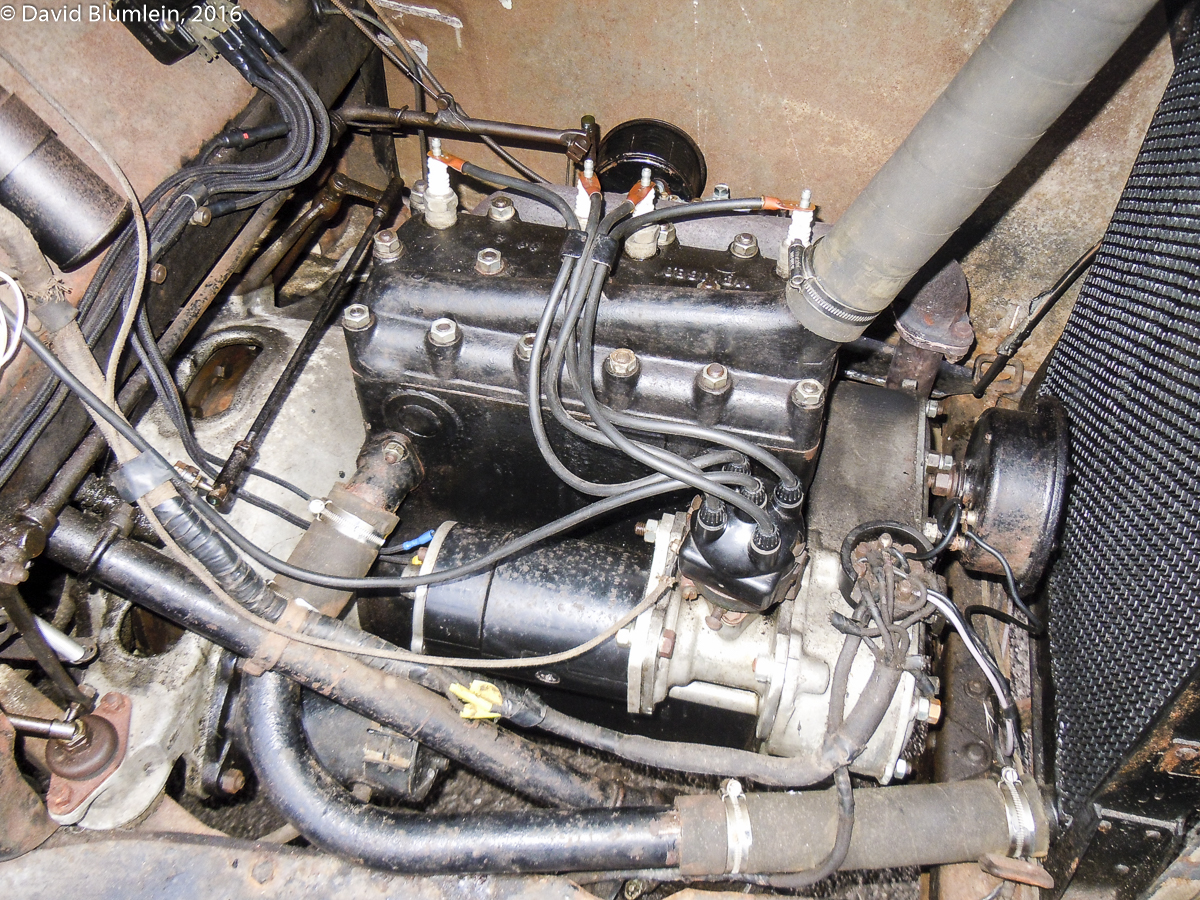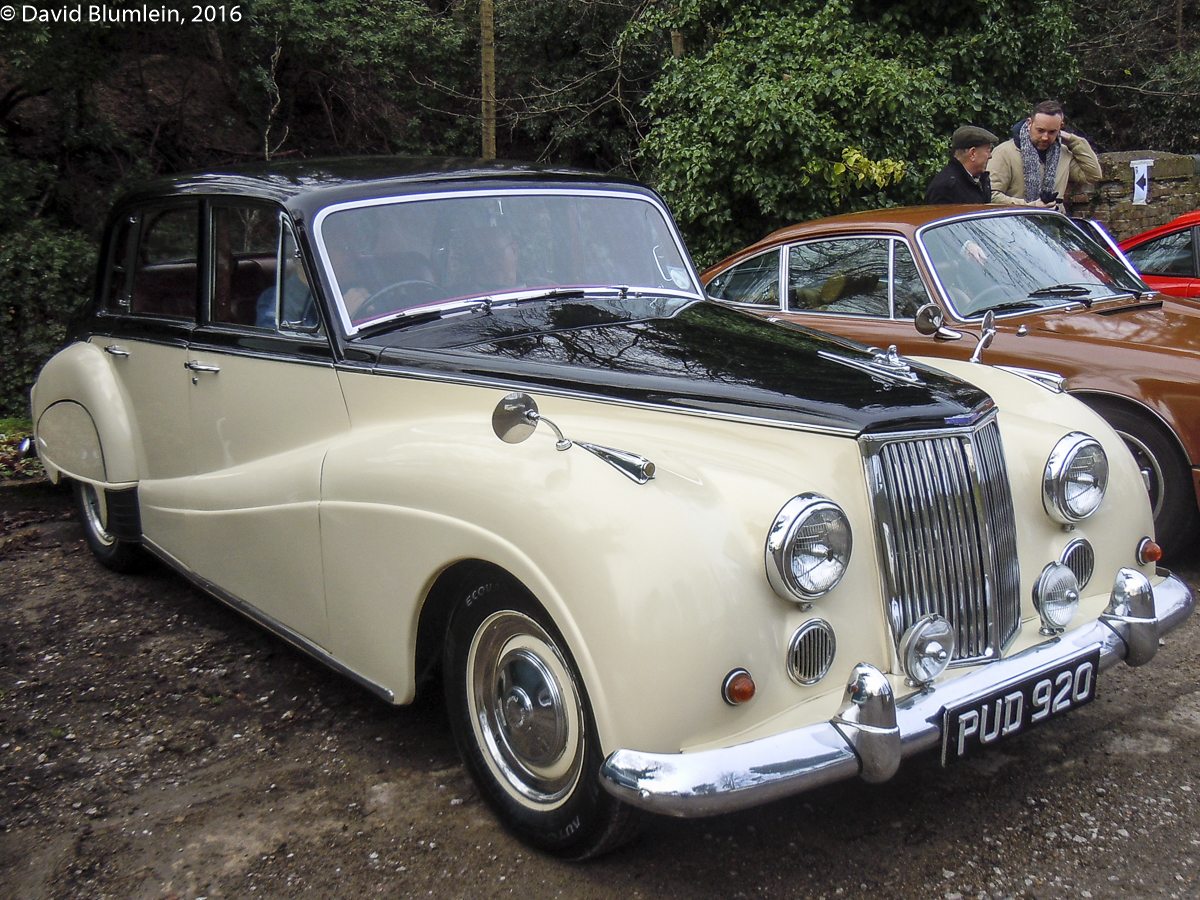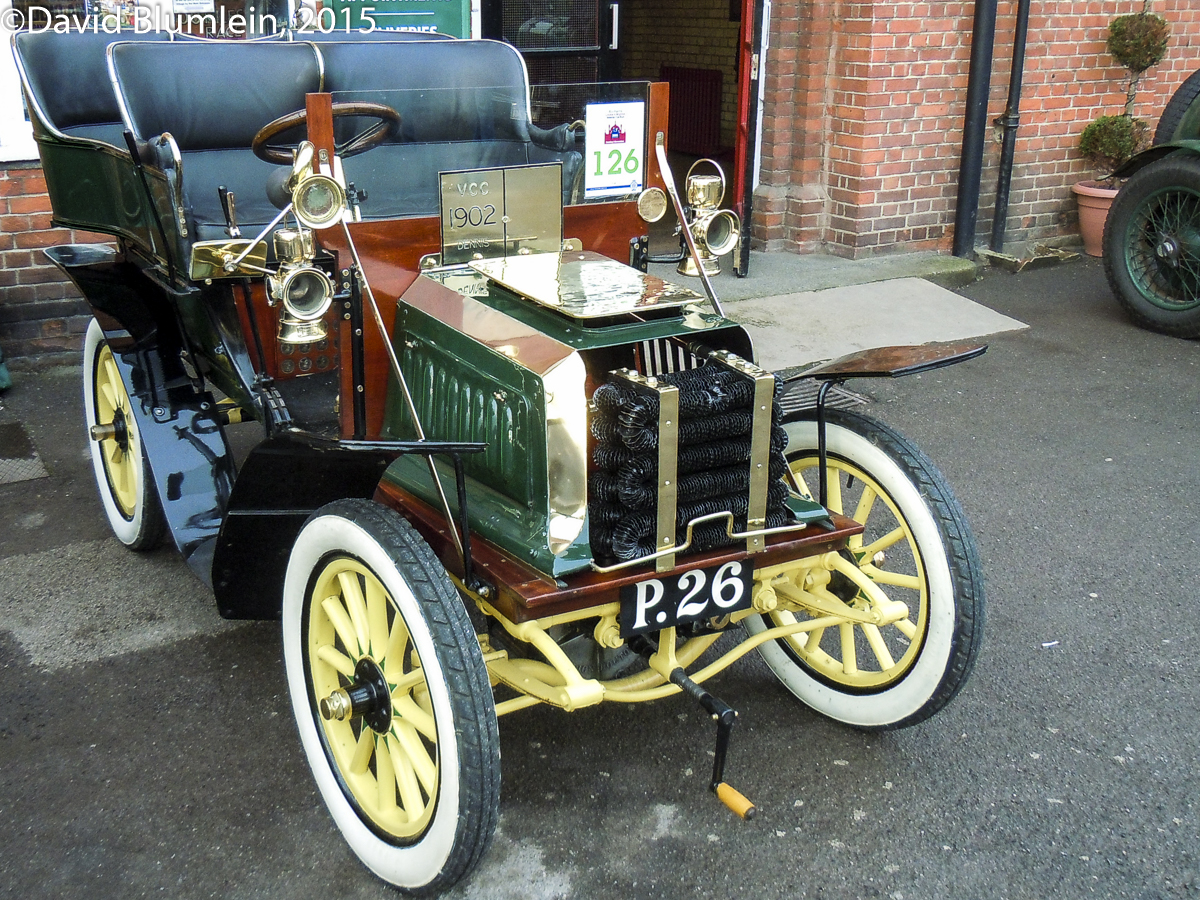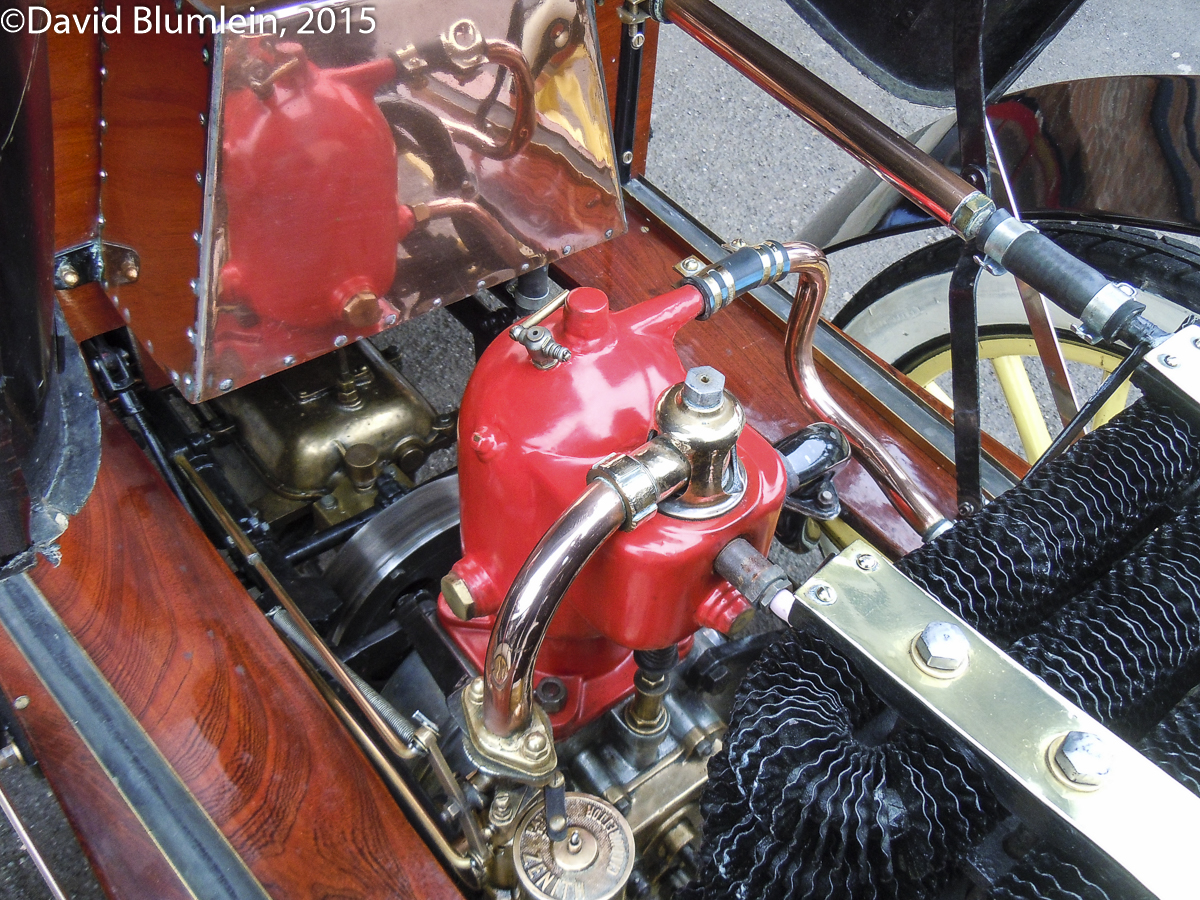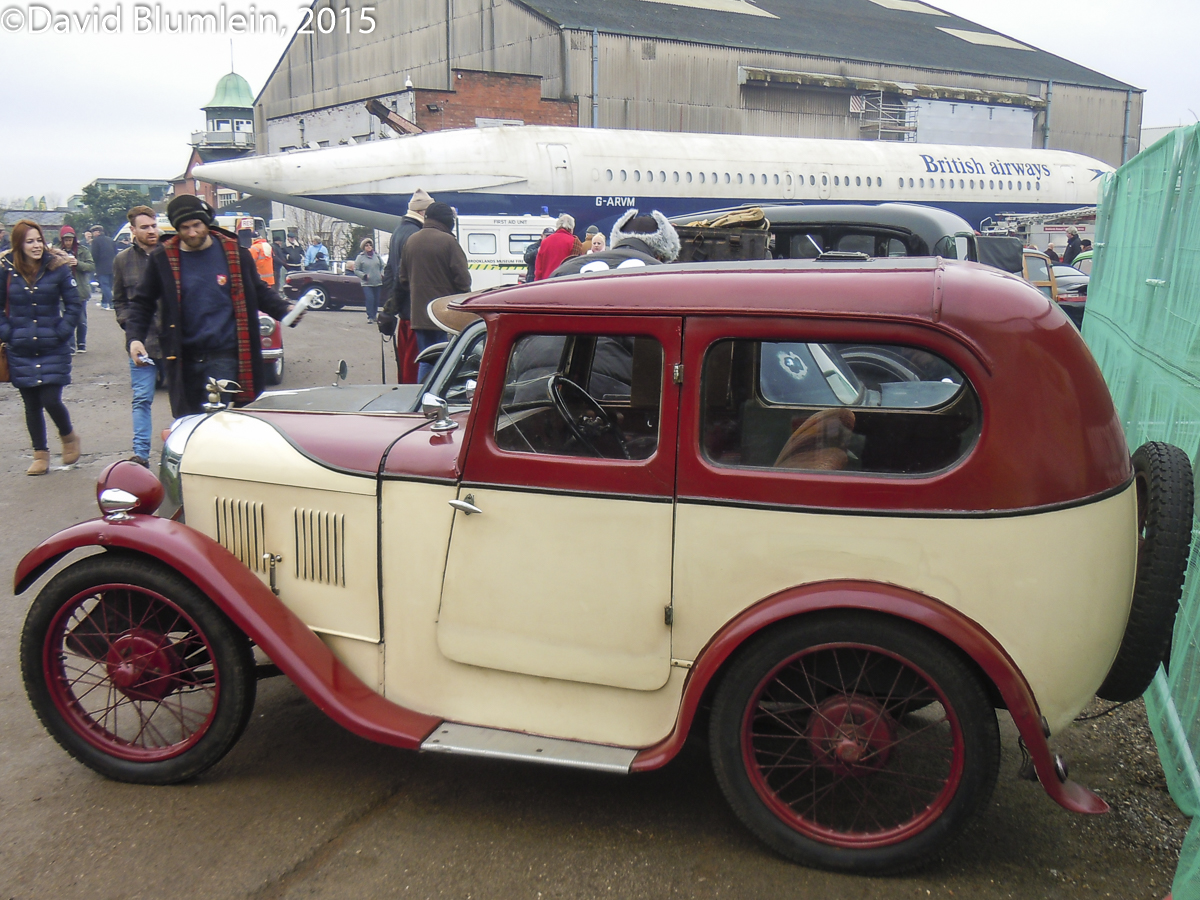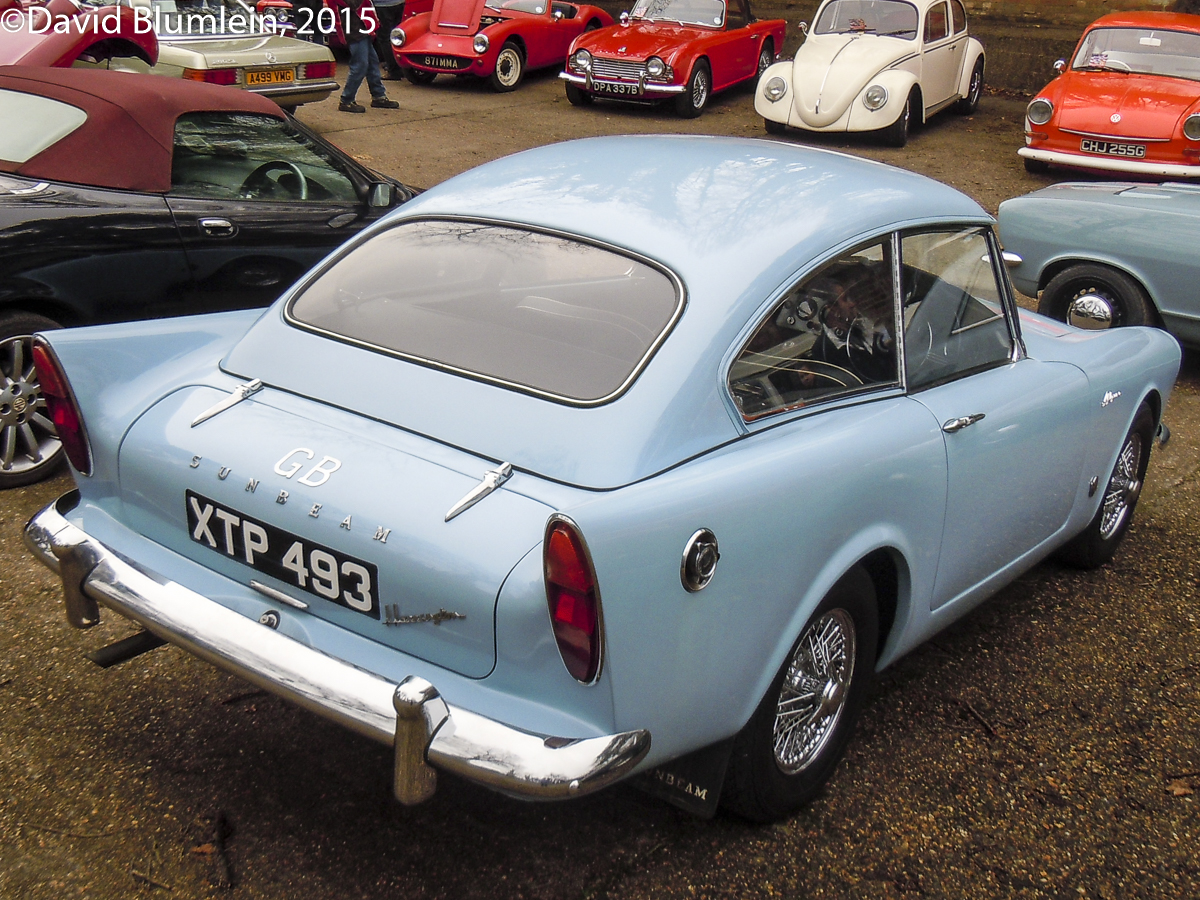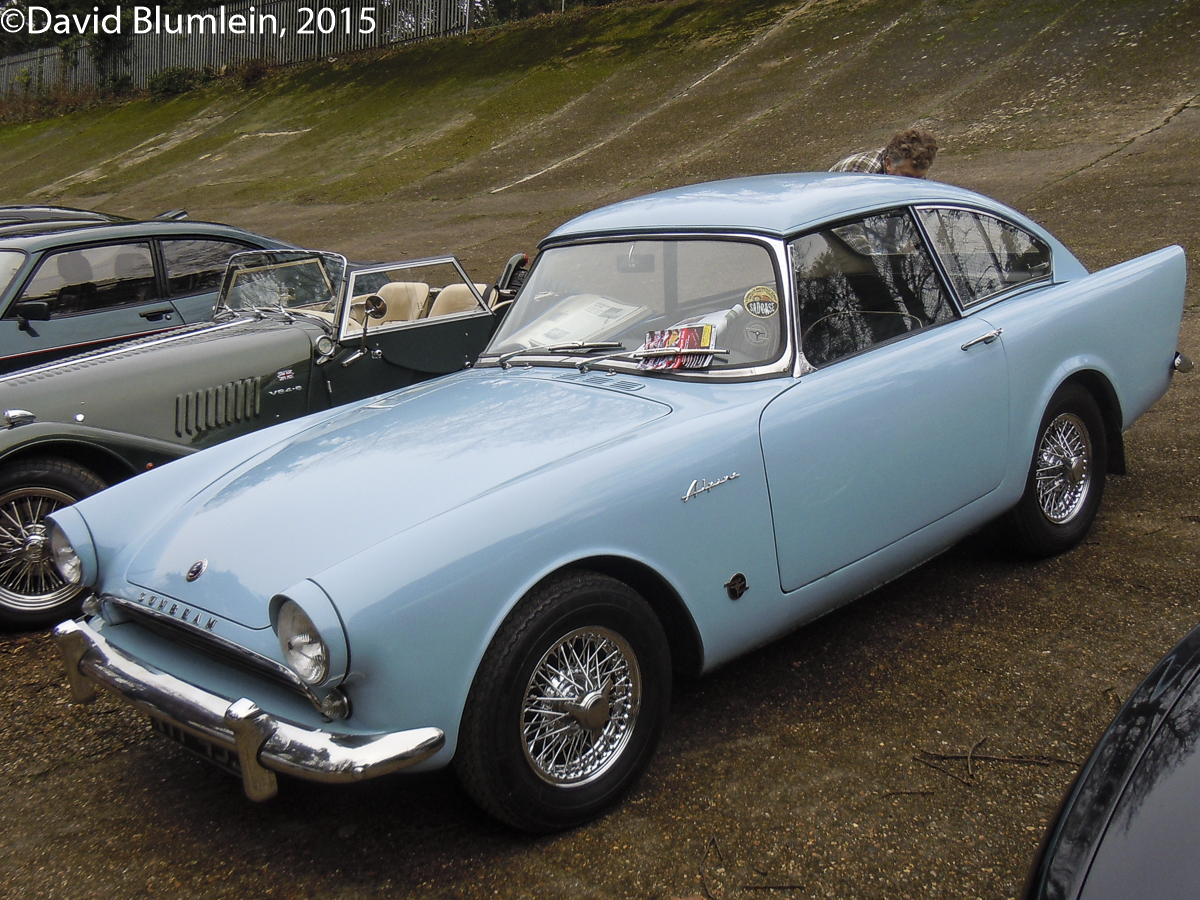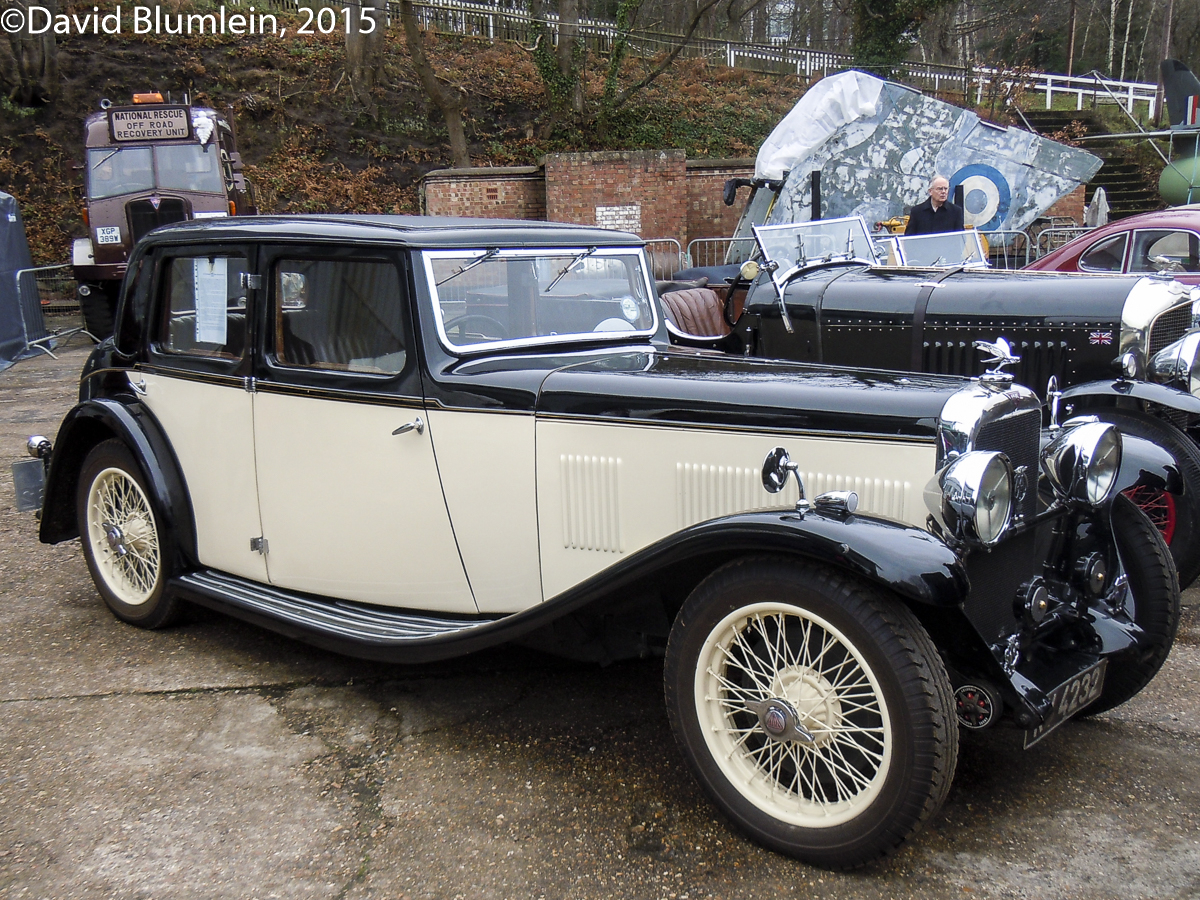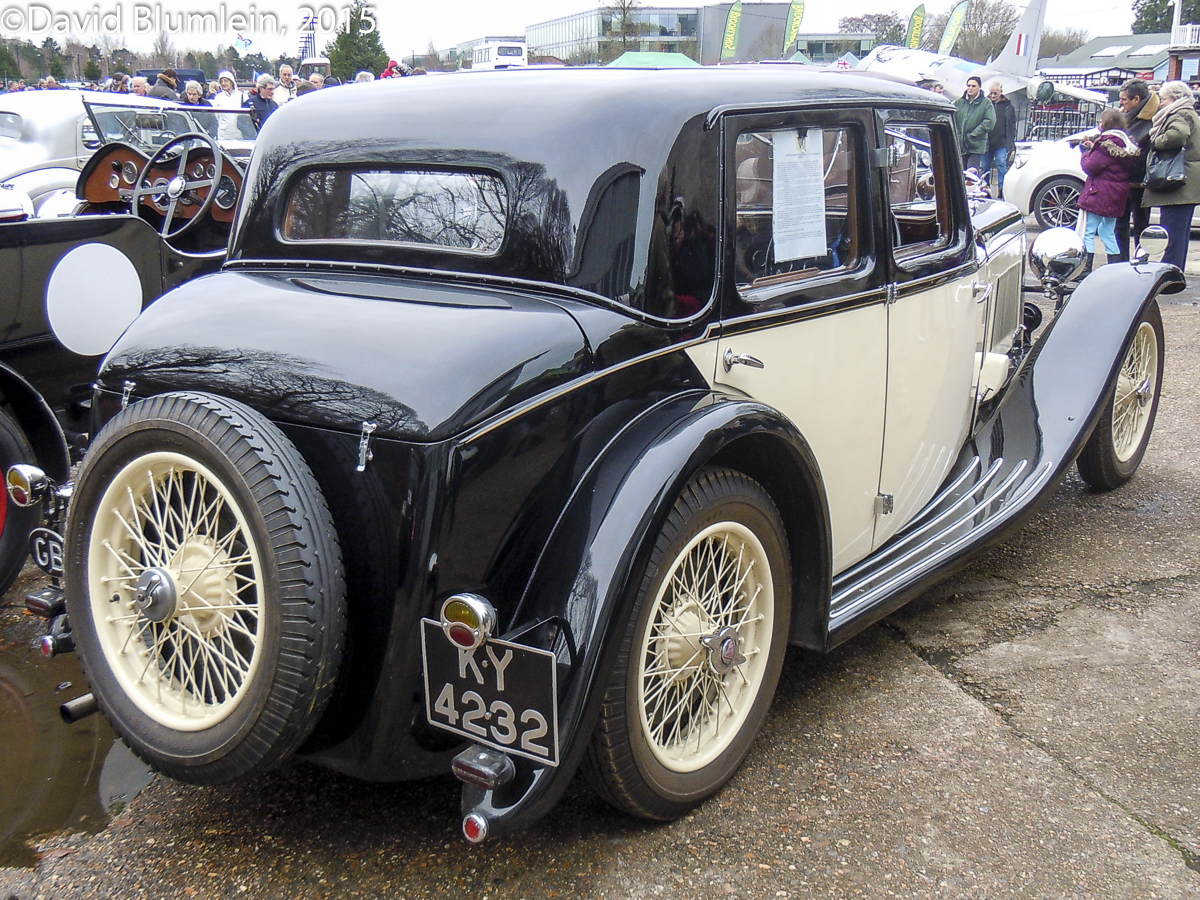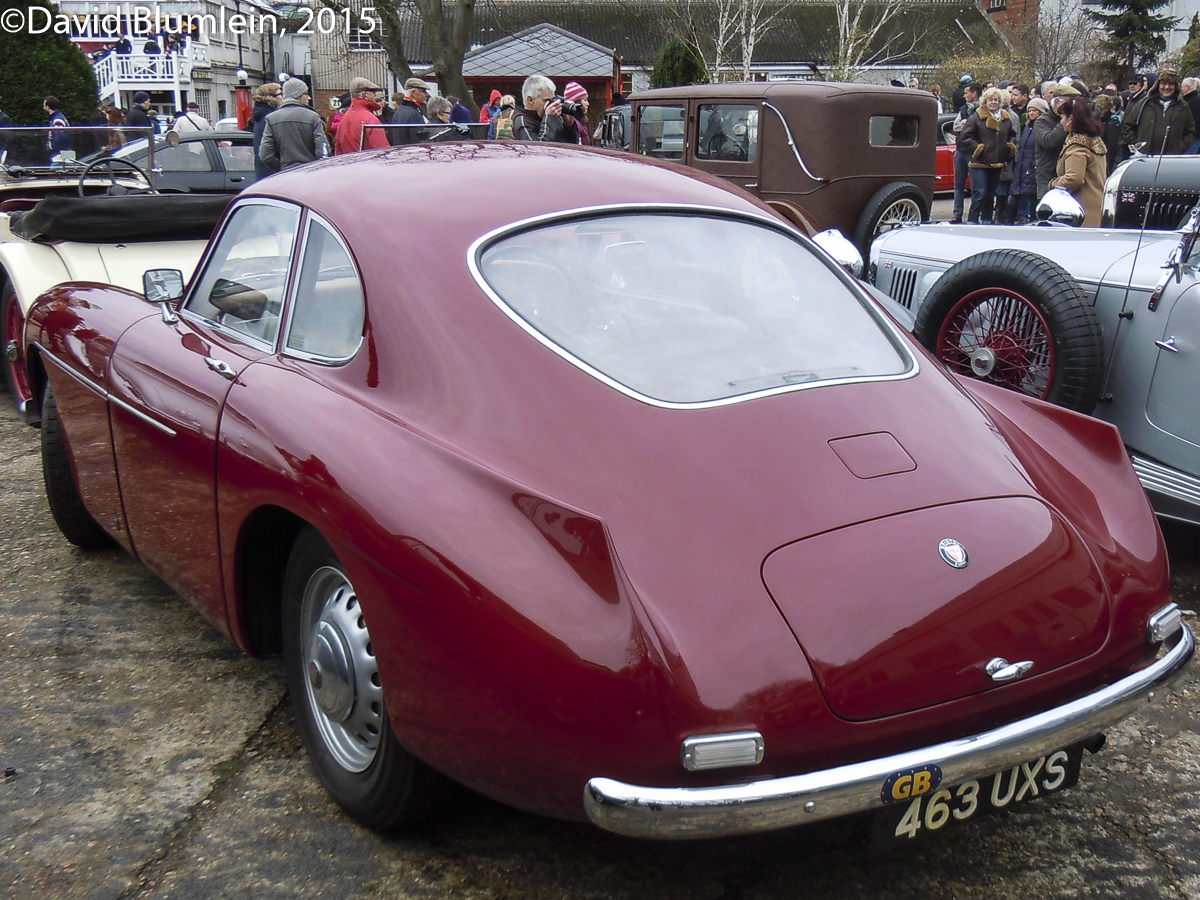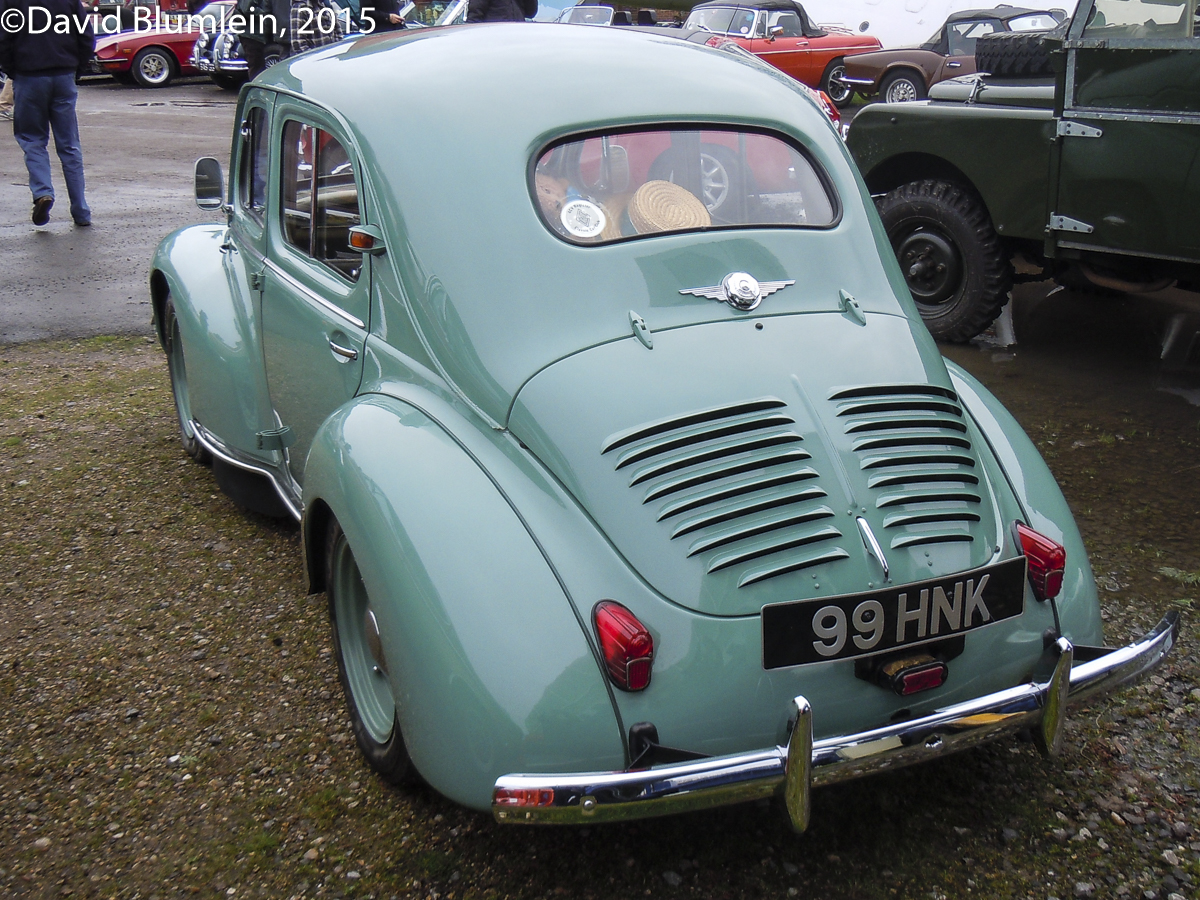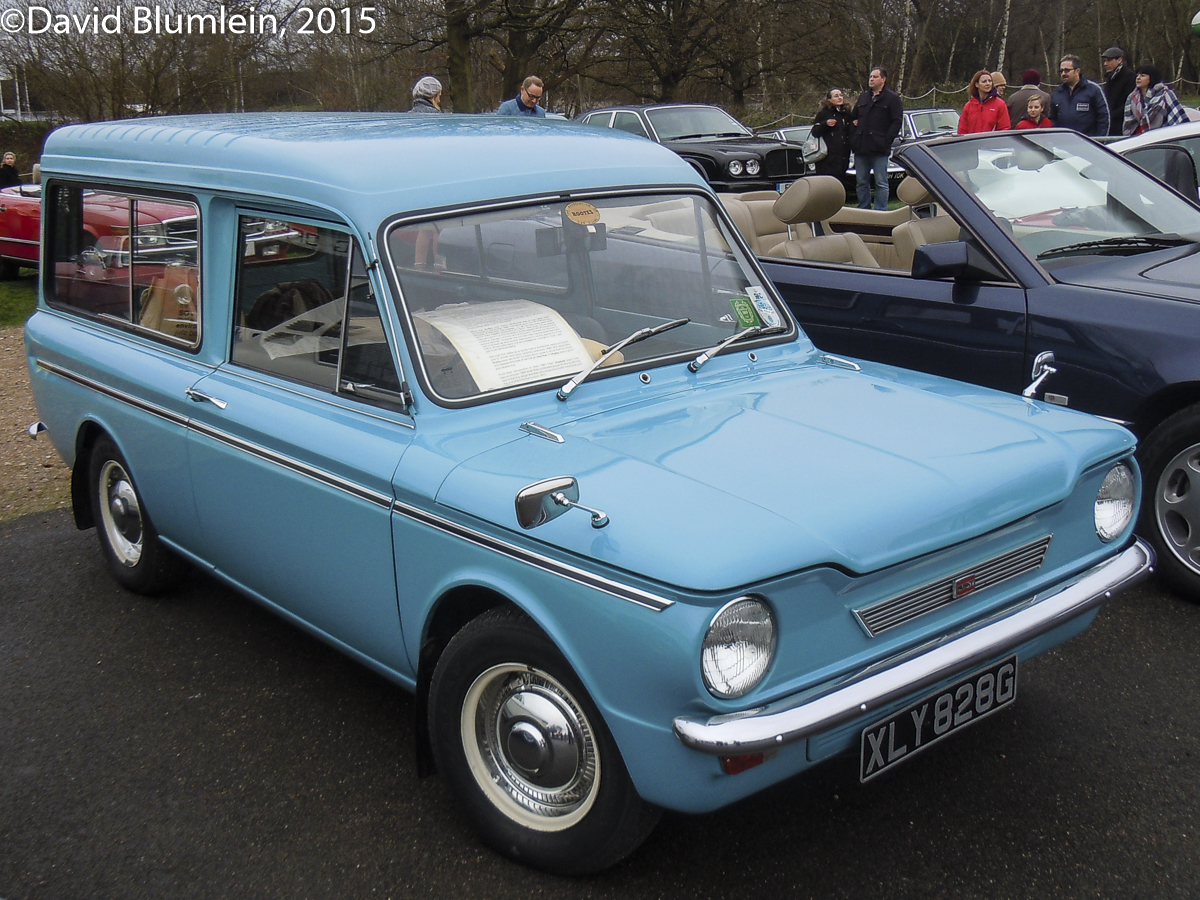The Brooklands Museum celebrates the arrival of a New Year with an open house to all manner of interesting cars. Where else would our Special Correspondent be on January 1st? He found lots to see and enjoy.
One of the very first Jensens. It is based on a Ford V8 chassis and mechanicals but has a Jensen body. It dates from 1935.
A completely unrestored B.S.A. Ten from 1933. It has a 4-cylinder side-valve engine of 1172 c.c. and a 4-speed pre-selector gearbox in the then current Daimler tradition.
B.S.A. was at the time also making front-drive three-wheelers and they used the same engine but this had to be turned round to drive the rear wheels conventionally on this car.
One rarely has the pleasure of seeing Armstrong-Siddeley cars on the roads these days – they were fine, well-built, dignified cars which appealed to the well-to-do customers. This 1960 Star Sapphire is one of the last to be made before car production ceased. It used a 4-litre 6-cylinder engine with hemispherical combustion chambers, a design which was cloned by Humber for their final run of big saloons.
It’s often forgotten that the Dennis Brothers made cars before switching entirely to commercial vehicles and buses – many of London’s buses today are of Dennis manufacture.
This 1904 Dennis was, like so many cars of the time, powered by a single-cylinder De Dion engine.
How to improve an Austin Seven! This 1929 Swallow version is an example of the work of William Lyons (later Sir William) which led him on to make the first SS cars which in turn became the SS Jaguars.
A lovely Sunbeam Alpine with its body modified by Harringtons. Thomas Harrington was an old-established coachbuilder of Brighton, later Hove, whose main business after the Great War was building coach bodies but they also bodied a wide variety of cars.
One of these Alpine Harringtons won the Index of Thermal Efficiency at Le Mans in 1961.
You are not going to see another one of these!
It is a one-off Alvis prototype dating from 1932 and consists of a Firefly running gear, a 6-cylinder three SU carburettored Eagle engine mounted on a narrowed Speed 20 chassis with a Charlesworth body!
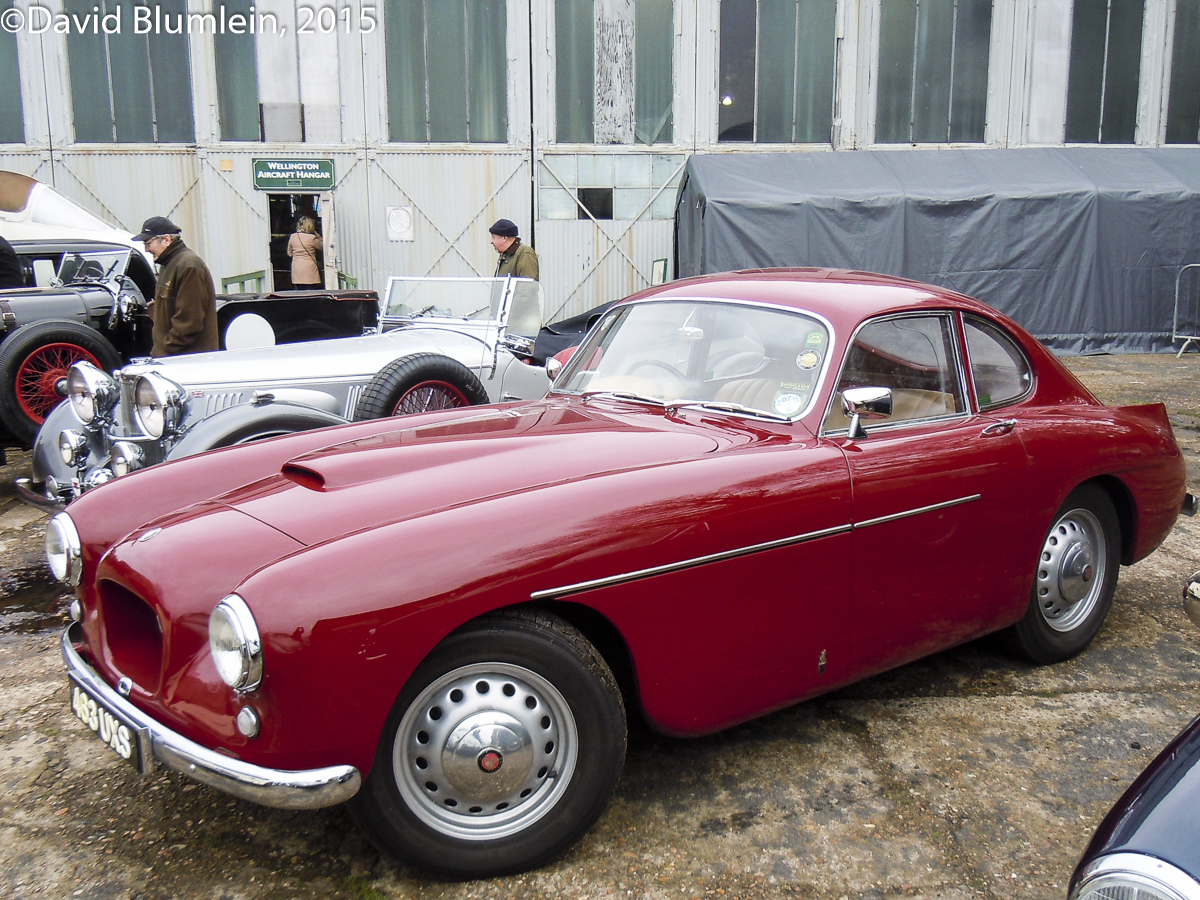
Surely the most desirable of all the Bristols?
The 404 was nicknamed the ”Businessman’s Express” but this writer remembers spying prototypes running around near Filton as a teenager and feeling that I had seen the best looking car ever!
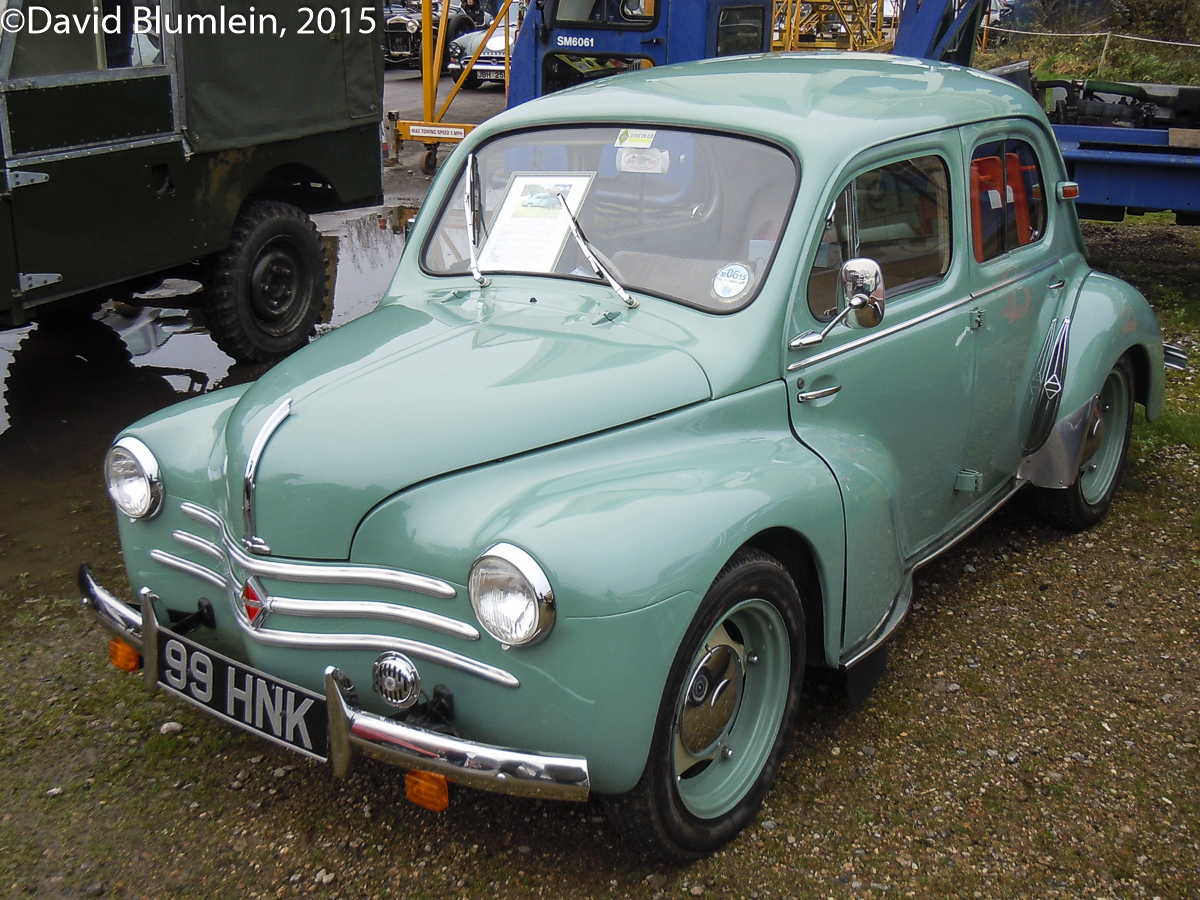
Renault’s first post-war car, the 4 CV or the 750 when its capacity was reduced for competition purposes.
This example was made at the Billancourt factory in Paris but these successful little cars were assembled at Renault’s factory on the Western Avenue at Acton until 1956.
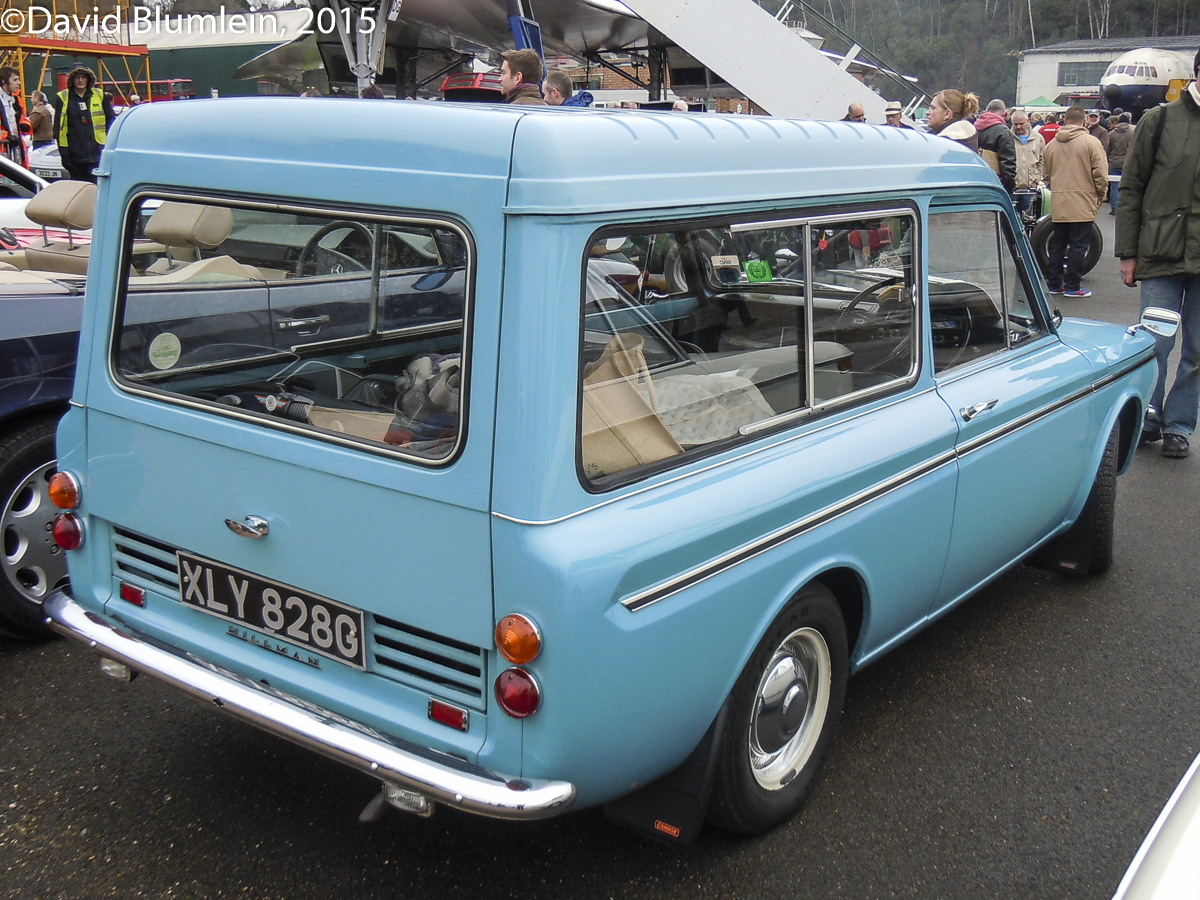
There were three completely different versions of the Hillman Husky.
A sports tourer on the Hillman 14 chassis in the 1930’s, a little utility on a shortened Minx chassis in the mid-Fifties and this smart version based on the Imp 5cwt van
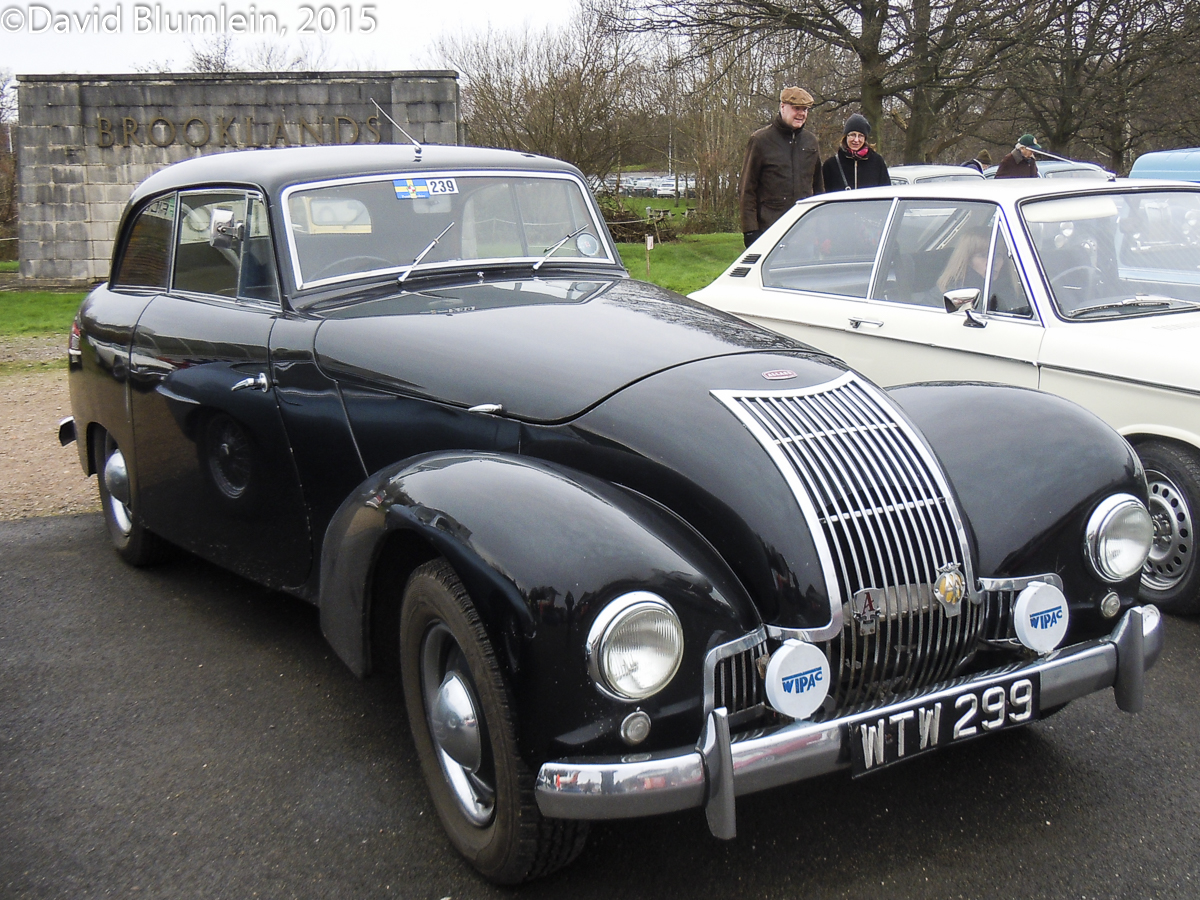
A wonderful example of a 1950 Allard P1 saloon, complete with a steering column gear change and of course a big V8 engine from Ford. In 1952 Sydney Allard won the Monte Carlo Rally outright in one of these, the only occasion when a driver won in a car of his own construction.
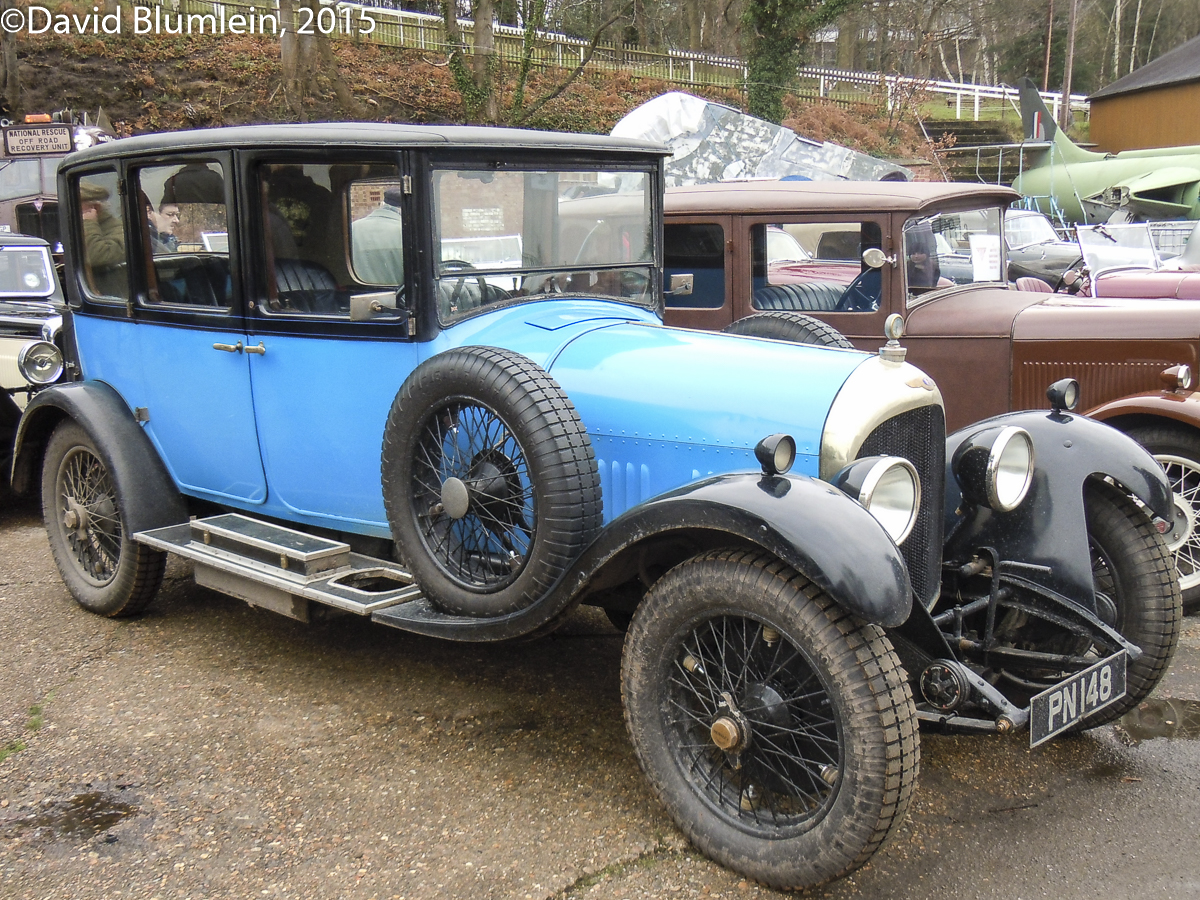
A bit grubby but the Bentley 3-litre looks lovely in blue.
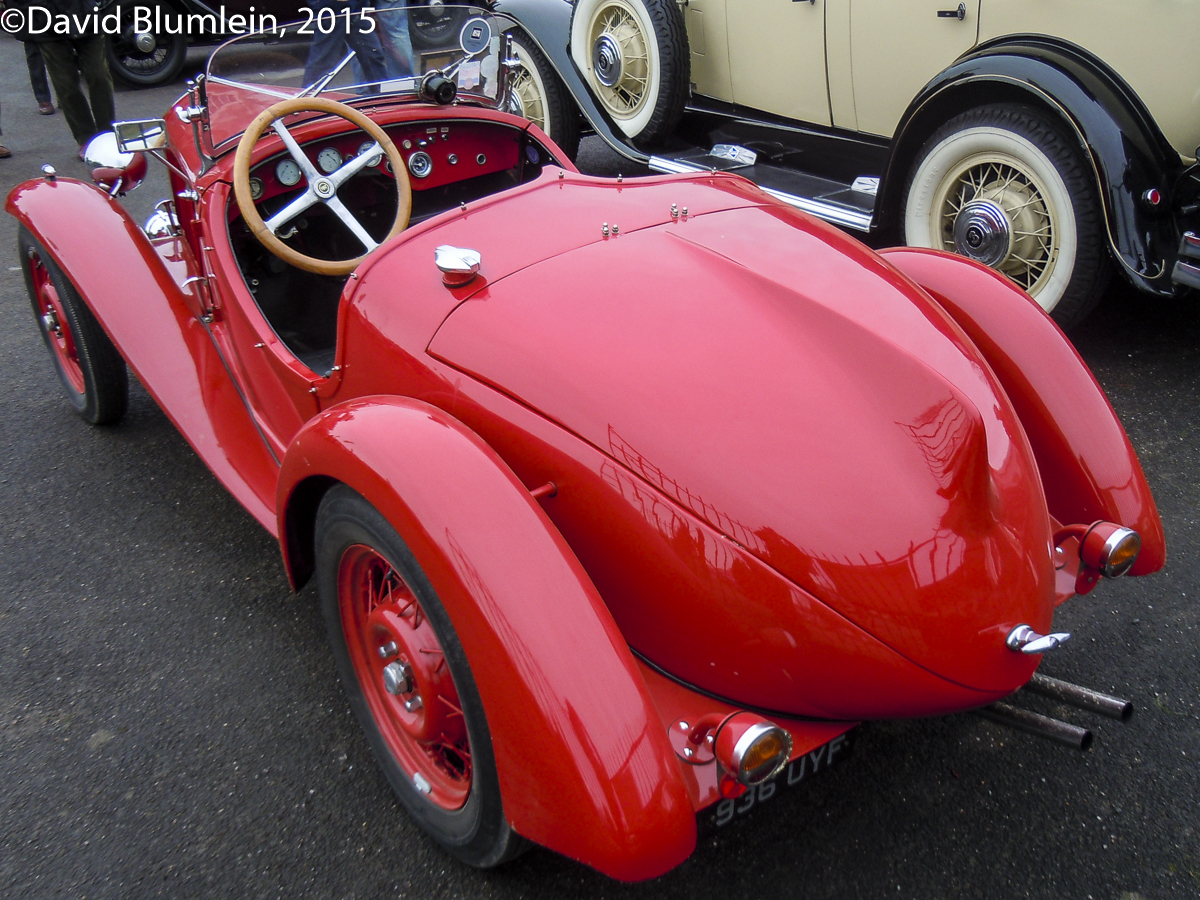
The Fiat 508 Balilla, named after a Fascist youth organisation, was a small car equipped with a 995 c.c. side-valve engine, 3-speed gearbox and either a 2-door closed or open body. It was introduced on 12th April 1932 at the Milan Motor Show although Mussolini had been given a preview in Rome on the 8th April. Inevitably sporting versions soon evolved and an open 2-seater with lowered body, sweeping front wings and a tail fin became the 508S. These cars were quickly plunged into competitions, an ohv engine and a close-ratio 4-speed gearbox being available from March 1934. Just two examples of their many successes were class wins in the 1933 Mille Miglia and in the 1936 Tourist Trophy at the Ards.
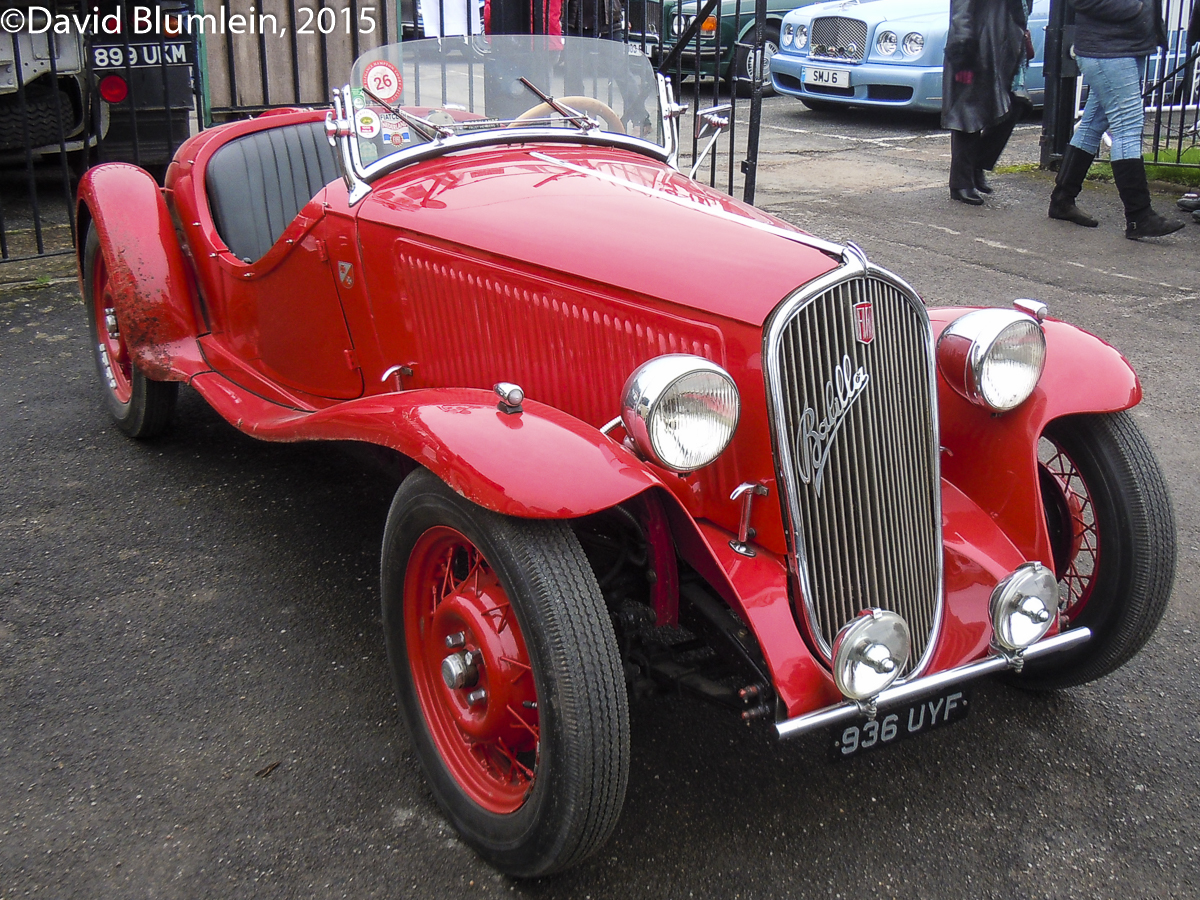
Interestingly, the Scuderia Ferrari entered one for the 1934 24 Hour Targa Abruzzo at Pescara, to be driven by one Zoboli, the Fascist Party official from Modena. Proudly wearing the emblems of the Prancing Horse on the sides of the scuttle, the car finished in 7th place. Another such entry was in the 1937 Mille Miglia for Piero Gobbato, the son of Ugo Gobbato, the head of Alfa Romeo who was assassinated as he walked from the factory to his nearby home on 28th April 1945.
TAILPIECE
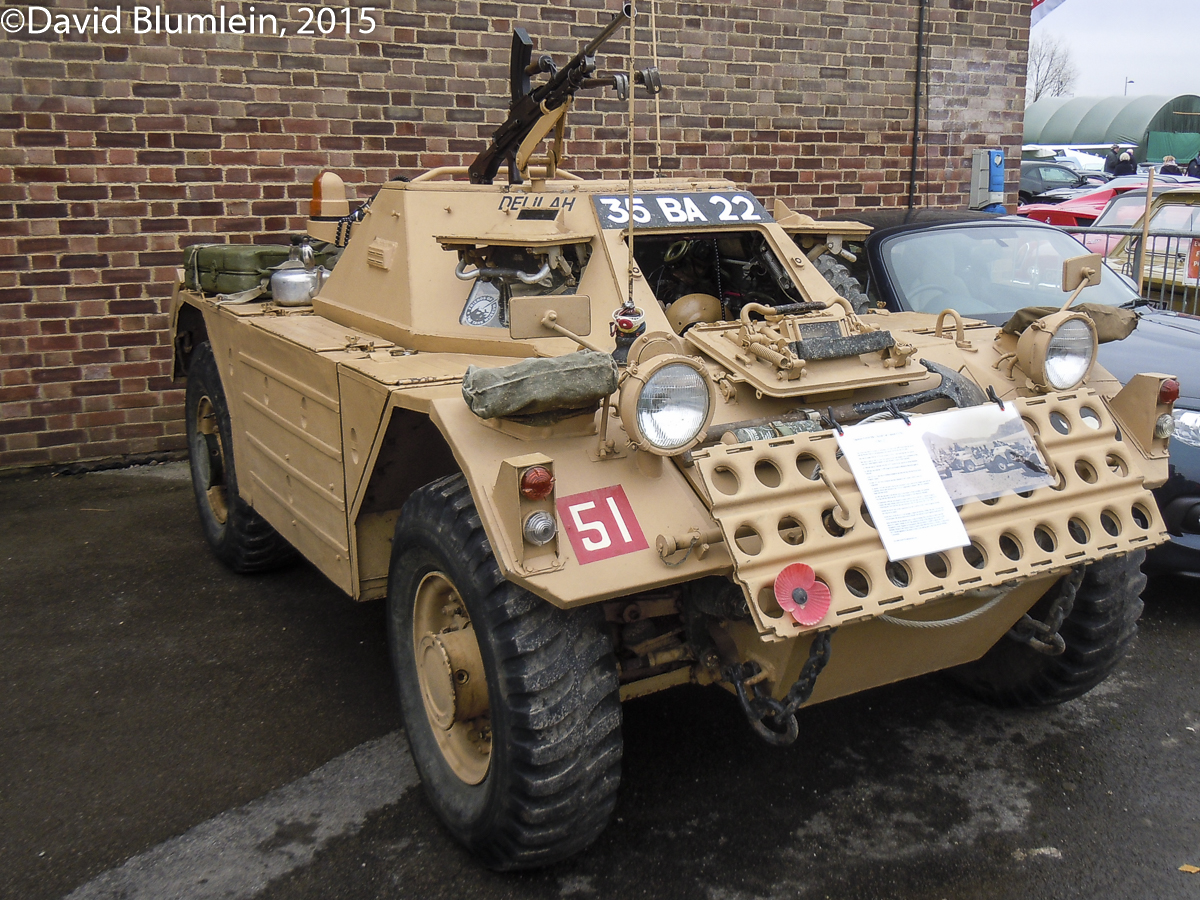
Daimler did not just produce staid motor cars but got heavily involved in developing fighting vehicles for the armed forces. Their Scout and Armoured Car Mark 1 were produced in quantity during the Second World War and this Ferret was in production into the 1970’s when it gave service to the NATO forces.
David Blumlein, February 2016

